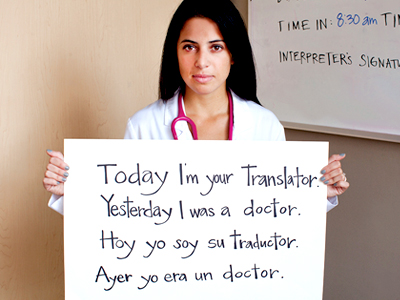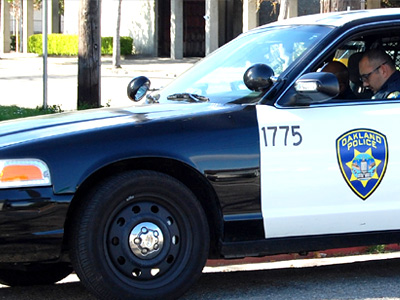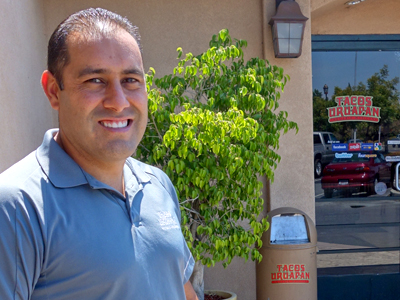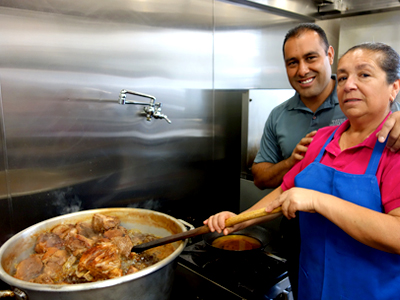Durante el fin de semana del 17 de agosto, doce personas sufrieron de disparos en Oakland en menos de 24 horas – tres de ellas murieron. Hasta el 19 de agosto de este año se habían reportado 65 homicidios en la ciudad.
Debido a que la frecuencia de los tiroteos con armas de fuego en Oakland se ha incrementado, algunos residentes están contratando seguridad privada en sus vecindarios, especialmente en aquellos [vecindarios] en los que no se ha visto violencia en el pasado.
Jan Hetherington vive en el vecindario de Oakland llamado Maxwell Park, un vecindario amigable que solo hasta recientemente había sido tranquilo y silencioso. A Hetherington y a sus vecinos les encanta el área pero ahora sienten que tienen que contratar seguridad privada para sentirse seguros.
“Un auto apareció por la calle, tres chicos salieron del auto con armas y hubo un tiroteo con disparos a tres calles”, menciona Hetherington. “Nuestra vecina Judy, quien vivía en la siguiente calle a la mía, murió de un disparo”.
Judy Salamon, de 66 años y paseadora de perros, fue asesinada el mes pasado cuando conducía rumbo a su casa. Aun no se sabe el motivo del asesinato, lo que hace que los vecinos se sientan más temerosos sobre su seguridad.
El Pastor Gregg Brown fue amenazado con una pistola por alguien que se quejaba sobre una lavadora eléctrica usada para limpiar la iglesia. Le dijeron a Brown que dejara de usar la lavadora o de lo contrario le dispararían. “Así de cerca está el crimen”, menciona.
Los residentes de Maxwell Park esperan que cuando las patrullas de seguridad privada inicien su trabajo en un par de semanas, traerán un sentido de seguridad al vecindario que no quieren dejar.
A lo largo de los últimos años, la fuerza del Departamento de la Policía de Oakland (OPD) ha sido reducida de 837 oficiales a 613. El incremento de tiroteos es adicional a las invasiones de casas y robos a mano armada que juntos hacen de Oakland una de las ciudades más violentas del país en este año.
Durante estos últimos seis meses, el Concilio de la Ciudad de Oakland ha tomado acciones para combatir los índices criminales. El Concilio ha:
- Agregado 36 posiciones más de personal civil dentro del OPD a fin de incrementar la respuesta a las llamadas al 911, mejorar las investigaciones y permitir que los oficiales hagan más trabajo de patrullaje
- Financiado por dos años cuatro academias de entrenamiento de policías, incrementando el OPD a 700 oficiales
- Contratado elementos de la Oficina del Sheriff del Condado y de California Highway Patrol a fin de complementar la presencia de policías.
La policía y Crime Stoppers de Oakland están ofreciendo de $15,000 a $25,000 en recompensa por información que lleve al arresto de los sospechosos de la muerte de Salamon y de otros asesinatos. Cualquiera que tenga información puede llamar a la policía al 510-238-3821 o a la línea de soplidos al 510-773-2805.






 Antonio applied his entrepreneurial drive to making carnitas at home and selling them by the pound in a pickup truck throughout the East Bay. Five years later, Alejandro and Bertha bought their first real taco truck. Antonio, whose smile gets bigger as he tells stories about his dad, joked that the name Tacos Tanguancicuaro was too long and that the sign would have been too costly, so they decided on Tacos Uruapan, a larger city nearby.
Antonio applied his entrepreneurial drive to making carnitas at home and selling them by the pound in a pickup truck throughout the East Bay. Five years later, Alejandro and Bertha bought their first real taco truck. Antonio, whose smile gets bigger as he tells stories about his dad, joked that the name Tacos Tanguancicuaro was too long and that the sign would have been too costly, so they decided on Tacos Uruapan, a larger city nearby.